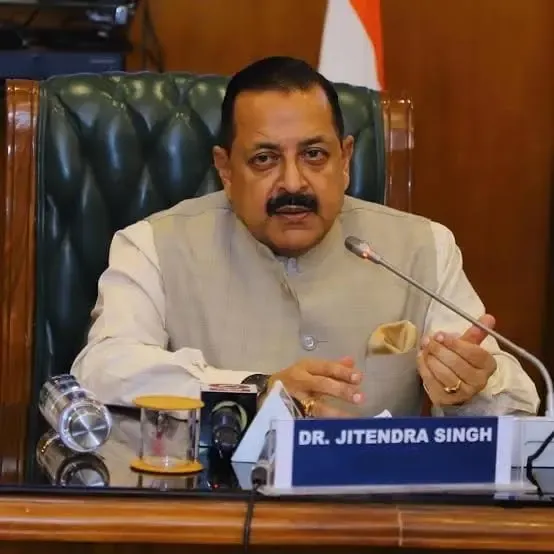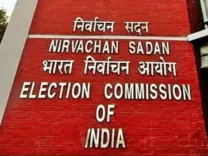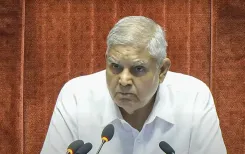Jitendra Singh: Biotechnology a Key Sector for India's Future

Synopsis
Key Takeaways
- Biotechnology is recognized as a priority sector in India.
- Andhra Pradesh is committed to leveraging biotechnology for healthcare.
- There are over 10,000 biotech startups in the country.
- Collaboration between state and central governments is crucial.
- Innovations in biotechnology can significantly impact various industries.
New Delhi, March 31 (NationPress) Biotechnology continues to be a vital sector in India, stated Union Minister of State (Independent Charge) for Science and Technology, Jitendra Singh, on Monday.
He remarked that the sector possesses transformative potential for various industries, including healthcare, pharmaceuticals, and sustainable startups.
This statement was made during a meeting with Y. Satya Kumar, the Health Minister of Andhra Pradesh, who requested enhanced collaboration with the Central government in the biotechnology domain.
Kumar expressed his appreciation for the Modi government’s ongoing support, emphasizing Andhra Pradesh's dedication to utilizing biotechnology for advancements in healthcare and industrial applications.
He highlighted the necessity for increased partnership to introduce state-of-the-art innovations to the region.
“Biotechnology remains a priority sector under the current government,” Singh affirmed, pledging “full support to Andhra Pradesh from the Centre.”
He underscored the transformative potential of biotechnology in areas such as healthcare, pharmaceuticals, and sustainable startups, noting that “Andhra Pradesh could significantly contribute to these advancements.”
“In recent years, Andhra Pradesh has positioned itself as a significant player in India’s biotechnology arena, particularly in biopharmaceutical research, marine biotechnology, and agricultural biotech solutions,” Singh remarked.
Currently, over 10,000 startups are operating within the biotechnology sector across the nation. Of these, “70 percent are concentrated on medical and health biotech, with the remainder dedicated to agriculture, environment, and industrial biotechnology,” according to Singh.
Additionally, the two leaders discussed strategies to enhance biotechnology-related initiatives in the state and improve ongoing projects with federal backing.
The state is home to numerous biotech incubators and research institutions that have played a crucial role in fostering innovation and entrepreneurship.
Thanks to initiatives like the Biotechnology Industry Research Assistance Council (BIRAC) funding and national biotech missions, Andhra Pradesh has experienced notable growth in biotech startups and industry collaborations, as mentioned by the MoS.
“The renewed emphasis on collaboration aims to further integrate the state into India’s extensive biotechnology framework,” he added.
This meeting is particularly significant as India strives for self-reliance in biotechnology and seeks to expand its global presence in research and innovation.
With Andhra Pradesh aiming to bolster its biotech ecosystem, these discussions indicate a new momentum for state-central cooperation in this high-growth sector.





